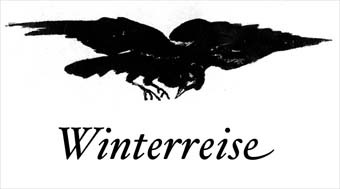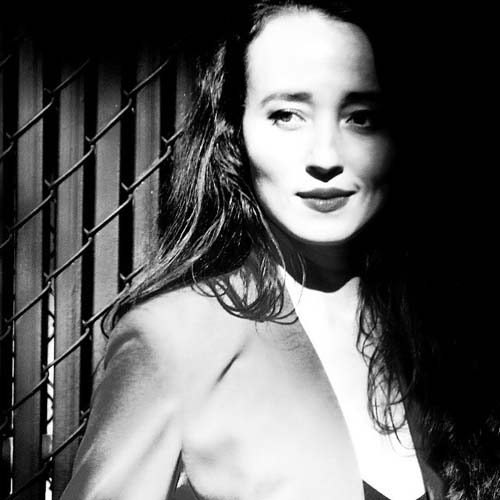Winterreise's boundless and transcendent humanity
I feel a peculiar vibration as I jot down thoughts about Winterreise during lockdown on a cold January day in the middle of a pandemic. Sometimes the accessibility of a piece is so immediate because of an uncanny confluence between art, inner experience, and outer life. This moment is one such kismet. The pandemic has been a journey of unexpected impasses, detours, interminable duration … and paradoxes. For example, there is an oddly comforting sense of unity in the global nature of the havoc, and yet also profound isolation on our individual paths navigating the challenges. So, I’ve been reflecting a lot on the way crisis deepens the construct of Journey. And what music and poetry better express this than Winterreise!
A few months ago, a chamber music series in the States commissioned me and my friend/collaborator Julius Drake to record a recital programme of our choosing. Winterreise was the unassailable choice. Having performed the cycle only twice before, I still feel like a complete neophyte with the material; the first two outings felt epic, wondrous, revelatory … and yet, I never felt like I grasped a sense of the whole journey. My focus then was on staying present to each moment, so perhaps it was a case of not being able to see the forest for the trees. This third time felt markedly different – no doubt due to my counterpart’s depth of wisdom and experience with the cycle as well as to unsettling synchronicities with external life.
This time around, I felt a more instinctual communion with the breadth of emotion encapsulated in each song. There is nothing monochromatic in the psychological journey the protagonist takes—in the first song alone, “Gute Nacht”, anger, grief, passion, regret, self-recrimination, tenderness, all co-exist and overlap, establishing that the path ahead is a deep dive into the complexity of our humanness. The precipitous shifts in mood, tone and colour within and between songs also no longer felt manic, but rather, elemental. Julius helped me understand this in “Frühlingstraum”, for example, in which the abrupt pivot to the middle stanza, “und als die Hähne krähten…”, can be expressed through a sharp inhale of horror that allows crushing loneliness to smash through the misty-eyed dream world of the opening refrain, “ich träumte…von lustigem Vogelgeschrei”.
One hallmark of the protagonist’s journey that echoes the present moment is uncertainty. The traveller’s path is not linear; it is more about navigating emotions and experiences than reaching a defined destination/outcome. “Die Post” encapsulates uncertainty so brilliantly via this underlying question—perhaps rhetorical--to “mein Herz”: dare I get my hopes up for good news (or any news) or am I just setting myself up for disappointment? To underscore the protagonist’s self-enquiry, Müller often employs direct address to “mein Herz” and “meine Tränen”, but also “der Lindenbaum”, “die Krähe”, and the suns in “die Nebensonnen”, amongst others. To me, this frequent personification reflects the protagonist’s desire for comfort and connection as well as his immense loneliness. It’s only when we get to “der Leiermann” that the possibility of hope and tentative transformation arises, brought about by a moment of (socially) distanced communion with another human being; in the hurdy-gurdy man the traveller sees a doppelgänger of soul—someone stripped down to the barest of essentials. I remember how I felt during the recording a couple of months ago. My protagonist could have cried tears of relief at this moment of self-recognition (“und er lässt es gehen alles, wie es will”) were it not for his extreme fatigue and numbness in body and spirit. Nonetheless, I experienced it as a moment of faintest light and an awareness of a different type of journey ahead.
A few days before my very first Winterreise in 2018, I called Mark Padmore for some last-minute interpretive advice, and received a cryptic insight: “Don’t forget about humour”. I remember nodding vigorously, but feeling rather nonplussed. After all, Winterreise is hardly known for its levity. But in these last few months, this advice has made perfect sense. Through the present crisis, I feel we’re extra calibrated to the razor’s edge between seemingly opposing states of being -- horror and absurdity, despair and hope, etc. For the protagonist, manifestations of humour, whether self-mockery, absurdist laughter or whimsy, apparent in songs like “Auf dem Flusse”, “Irrlicht”, “die Post”, “Im Dorfe” and “Täuschung”, constitute some of the keenest moments of self-awareness. To me, these junctures reflect a momentary step back into the bird’s-eye view of the journey—the Self in context of the universal. Although the saga of pandemic continues, I’m grateful for the opportunities it has afforded to understand certain things better, both within myself and in connection with music I love. I’m only just beginning to scratch the surface of Winterreise, so am looking forward to the next opportunity to perform it and seeing what fresh insights await!
***One addendum: when I was first mulling over what to write about, I felt internal pressure to comment on gender performance practice and disabuse people of the notion that this cycle is male “territory” (a myopic attitude I have encountered from several corners). But frankly, I feel that engaging with this sort of lingering push-back only trivializes the boundless and transcendent humanity of this poetry and music!
© Fleur Barron




